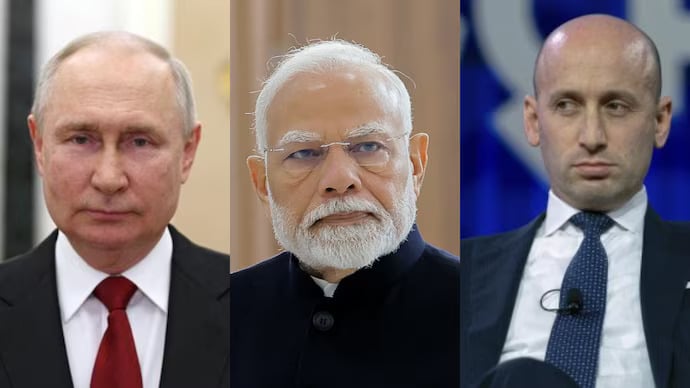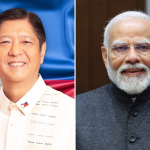Stephen Miller, a top aide to former U.S. President Donald Trump, has publicly accused India of indirectly financing Russia’s war in Ukraine by continuing to buy oil from Moscow. Speaking on Fox News’ “Sunday Morning Futures,” Miller stated that India’s growing energy trade with Russia is helping sustain the Kremlin’s war machine.
Miller claimed that India is now nearly tied with China in terms of the volume of Russian oil it is purchasing, calling the development “astonishing.” He also said Trump had made it clear that such support for Russia, even if indirect, is unacceptable.
The criticism comes amid escalating U.S. pressure on New Delhi. On Friday, the Trump-led administration imposed a 25% tariff on Indian products, citing India’s continued purchase of Russian military hardware and energy supplies. Trump has also threatened a 100% tariff on imports from any country that continues energy trade with Russia unless Moscow commits to a peace deal in Ukraine.
Despite mounting pressure, Indian officials maintain that oil imports from Russia are essential for the country’s energy security and economic stability. India now sources around 35-40% of its total crude oil from Russia—up from just 3% in 2021—a move driven largely by the discounted prices Russia offers.
Energy analysts estimate that halting Russian oil purchases could raise India’s annual import costs by $9 to $11 billion, forcing a shift to more expensive sources in the Middle East and West Africa.
Although Miller’s remarks were pointed, he acknowledged the strong personal rapport between Trump and Indian Prime Minister Narendra Modi, describing it as “tremendous.” Nonetheless, the criticism marks one of the harshest from any Trump aide since the start of the Ukraine conflict.
U.S. Secretary of State Marco Rubio has also flagged India’s Russian oil imports as a sore point in U.S.-India relations. While calling India a strategic partner, Rubio reiterated Washington’s concern that these energy deals undermine global efforts to isolate Moscow.
The Indian Embassy in Washington has yet to issue an official response, but the Indian government continues to defend its position, citing affordability and the need to shield its population—especially the economically vulnerable—from high energy costs.
This latest development underscores the growing strain between New Delhi and Washington, as India pursues a pragmatic energy policy amid an increasingly polarised geopolitical climate. The tension also highlights the broader challenge of balancing national interests with global diplomatic alignments in an era of energy insecurity and shifting alliances.













